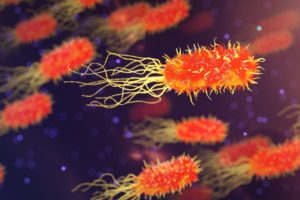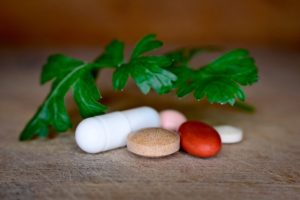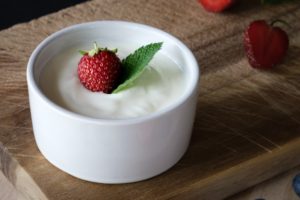Let’s face it. We are more non-human than human. No, not because some of our kind are really despicable creatures, but because, in general, only a fraction of all the cells inside our bodies are ours. And the path to good health relies at least as much on taking good care of some of those other cells, too.
University of Washington researchers say in a brief fact-sheet that the microbes deep down outnumber human cells by a whopping 10 to one. And our microbiome, the total of all the genetic compounds of those microorganisms, is — wait for it! — 200 times larger than our own genetic code.
So, we actually are a tiny minority government over our bodies. And what lies behind our power for all this time has been also the support of our allies among those microorganisms. It is exactly why we sometimes feel like losing control when their fellow microbes rather hostile to our wellbeing take over.
Good and Bad, Side by Side
But, who are those microbes? What makes them good or bad?
The non-human microscopic population includes bacteria, fungi, viruses and protozoa. Bacteria and fungi are the ones of which there are good and bad. Some are incredibly helpful. They help us digest parts of the food we otherwise wouldn’t be able to process any further. And yet there are those others totally detrimental to our health. So much so, they could even be fatal.
Among viruses and protozoa, however, there are no good ones. There are only those causing a variety of terrible symptoms and others that are just benign and do us no harm — at least to the best of our current knowledge.
Regardless, most of those microbes, both good and bad, colonize our digestive systems, living primarily within intestines where they all vie for control. So our guts are actually a battlefront for constant struggle day and night. And to which direction the balance of power is tipped has a huge impact on our health.

Enable Beneficial Microbes and Let Them Thrive!
Reading all this might have led to some frustration. That there is all this giant cosmos of microbes inside us and they could really push our health to the edge is scary. But please know that we are not completely helpless in the face of dreadful outcomes.
Shaping that ecosystem is in fact entirely possible. And once you do that with some golden tips, it might even be a wonderful blessing to help you live a long and happy life.
The key to make sure that is the case is enabling good microbes and letting them thrive. Here is how:
Avoid Using Antibiotics Unnecessarily
Antibiotics are lifesavers. They are the reason why we survive today some infections that people often died of not too long ago. Yet we all must be careful about when to use and when to avoid them because they, too, could bring about ugly outcomes.
It is extremely important to know that those powerful drugs could only treat bacterial infections. So, do not take even a single, tiny dose of antibiotics if you have a virus infection such as cold, flu or diarrhea.
That is because it would be like driving a tank onto a garden of flowers to kill some pests there. Surely, no pest will die under its palettes, but all your flowers will be gone as a result. You don’t want that.

Discover The Magic of Probiotics
No matter if you are on or off antibiotics, one good way to restore a good intestinal ecosystem is to take probiotic supplements. They are available at almost every health store today. Or better yet, you can do it in a way that is even easier and more fun: Simply eat probiotic food.
Examples of that type of nutrients include dairy products that contain helpful bacteria like yogurt and kefir or various dishes made of fermented vegetables and legumes such as kimchi, sauerkraut and miso.

Keep Your Good Bacteria Well-Fed
A majority of our microbiome live in the large intestine, or colon. For the good bacteria among them to thrive, they need to have some of our food intake reach this part of the body undigested.
And that is only possible with prebiotics (such as chicory root, dandelion greens, asparagus, garlic and onion) and foods that contain resistant starch (such as whole grains, potatoes, rice, apples and bananas). Include them in your diet and you won’t have to wait too long to feel there’s been a significant change to the health of your digestive system and the strength of your immune system.

What If You Are Already Too Sick?
But in the case of some intestinal disorders like irritable bowel syndrome (IBS) or more serious issues like an ulcerative colitis or a clostridium difficile infection, patients might not have the energy to tolerate a steady yet staggeringly slow improvement to their situations. For what is right and wrong, they often ask for a miraculous treatment. And what they need could just be in another individual’s stool.
It is not uncommon to feel a bit squeamish over this — still controversial — procedure but medical doctors in the U.S. like elsewhere around the world are warming to the idea of fecal microbiota transplantation (FMT).
The procedure basically consists of injecting a healthy individual’s stool — after, of course, being checked for all its content — into a sick person’s colon. The goal here is to help stop the spread of bad microbes and overthrow their monopoly on who calls the shots down the patient’s bowels. Cool, right? And a bit odd. I know.
Over the past few decades, it has become a serious consideration for the world’s top medical institutions. The reputable Johns Hopkins Medicine in Baltimore, Maryland, for instance, has an entire team of specialists for this treatment today.
***
Disclaimer Notice: The DC Post solely aims to raise public awareness on common health problems with its reporting. For actual medical advise, please only consult licensed medical professionals.
Here is Where to Get the Best Spa Treatment in Washington DC

